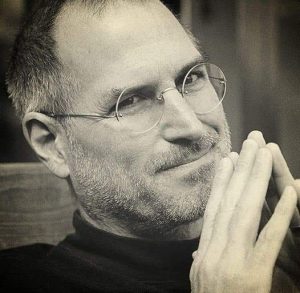During the course of a week, a lot of information and hearsay finds its way to my desk, either from The Internet or via snail mail. It often merely sits there on my computer or on my desk until I delete it or send it into the “round file.”
Normally, this material is not enough to warrant a complete post by itself. As the Aussies like to say, it’s a “dog’s dinner”—an assortment of scraps that, when mingled, can make a meal for a dog, or in this case, a comprehensible post.
So today, I have prepared another dog’s dinner for you. Volume III contains a collection of thoughts, ideas, and commentary that I hope you will find enlightening, if not downright disturbing. Be sure to check out Volumes I and II on my blog.
Let’s make Hollywood manly again.
Sometimes, it takes an insider to ferret out and reveal that something is rotten in Hollywood—sorry, Shakespeare, Denmark just didn’t work for this post.
In this case, the insider is Kevin Sorbo, the 65-year-old actor who has portrayed Hercules, among other roles. Recently, the 6’3” actor and martial arts aficionado decided he had had enough of the way Hollywood portrays men in film and on TV.
So he sat down and penned a new book entitled “The Test of Lionhood,” in which he takes the entertainment industry, social media, and mainstream media to task for what he says is a negative portrayal of men.
“Everywhere we look, bold, confident, self-assured females upstage passive men who recede quietly into the background. Into the basement. Into the past,” Sorbo says. “Fathers, in particular, have become the butt of every woke Hollywood jab, the bumbling, useless idiots who contribute nothing to their families or communities but sacrifice themselves as objects of ridicule.”

Sorbo believes society today seriously misunderstands masculinity. On the one hand, we love to normalize androgynous, Billy Porter-type men who sport skirts and poofy dresses. GQ’s 2019 best-dressed man, Timothée Chalamet, for example, often wears clothes that, well… let’s just say your grandfather wouldn’t have been caught dead dressed like Chalamet.
“On the other hand, our favorite movies are heavily populated with brawny macho men. I should know – I made a name for myself in the industry playing a Greek half-god,” Sorbo writes.
But is that really all that it takes to be a good man? Sorbo asks. No. In fact, you can work out and dress like a man’s man – ridiculing “betas” like Dylan Mulvaney and Chalamet – and still fall prey to the masculinity crisis.
How?
“In order to go out and conquer the world, men must first conquer themselves,” Sorbo says. “Sadly, men today have often instead been conquered. We’ve been subdued by alcohol, drugs, video games, porn and other entertainment. The caricature of the useless man in his parents’ basement increasingly depicts real life.”
So, does Hollywood fear good men? Sorbo asks. Not necessarily big, bulky men with daunting physiques – those aren’t in too short supply on today’s big screen. Good men. Admirable men. Men, we’d want our sons to emulate and daughters to date.
It doesn’t really matter what end of the masculinity spectrum you fall on; if you’re a victim to your own base desires, the feminist culture has won. You’re exactly the kind of wussy man they want you to be.
“Let boys be boys, let girls be girls, and let’s stop chopping down men,“ Sorbo says.

“America today needs warriors, protectors, responsible and committed fathers,” he adds. “We certainly don’t need another MCU-esque superhero. We need men who will raise their kids, defend their homes, provide for their families, and serve self-sacrificially – all of which is impossible if they are dissipated and addicted to pleasure.”
The call of duty to today’s man is to rise above what society and the media say he is doomed to be, becoming instead the leader his family and community so desperately require.
Once again, young men are in need of that kind of role model. Sorbo says. Enough with the impotent sitcom father figure. Enough with the brutish he-man who only abuses his strength and makes a mockery of masculinity.
Boys, especially, need heroes, Sorbo insists. It’s part of why storytelling has been an essential part of culture throughout history, particularly through the medium of filmmaking in this generation.
“It’s time for the world’s entertainment capital to reintroduce good men: men who love their wives and children, protect them, fight for what’s right, and speak up for the powerless Sorbo writes. “Men who, above all, have overcome their own selfish desires and are free to put others first.
And that’s exactly the kind of man Hollywood refuses to portray.
————————————————————————————————————————————————————
Electric Vehicles are not the Answer. In fact, they may be the problem
One of Joe Biden’s answers to stopping pollution is to force all of us to junk our gas-powered cars and trucks and shell out our hard-earned cash on EVs—Electric Vehicles.
But electric vehicles are powered by lithium batteries and require other critical metals where China dominates the market. Mining and processing of lithium, however, turns out to be far more environmentally harmful than what turned out to be the unfounded issues with fracking for oil and gas.
During the Obama-Biden administration, hydraulic fracturing was blamed for causing several environmental problems, including air pollution and the contamination of drinking water—none of which was ever validated by the administration’s own Environmental Protection Agency.
In fact, the lithium, cobalt, nickel, and manganese that are needed for the batteries that power electric vehicles is a much more invasive and damaging process than fracking or drilling for oil and gas.
In China, a couple of years ago, dead fish were found in the waters of the Liqi River, where a toxic chemical leaked from the Ganzizhou Rongda Lithium mine. Cow and yak carcasses were also found floating downstream, dead from drinking contaminated water. It was the third incident in seven years due to a sharp increase in mining activity, including operations run by China’s BYD, one of the world’s biggest suppliers of lithium-ion batteries.

After the second incident in 2013, officials closed the mine, but fish started dying again when it reopened in April 2016.
The fact is the lithium extraction process uses a lot of water—approximately 500,000 gallons per metric ton of lithium. To extract lithium, miners drill a hole in salt flats and pump salty, mineral-rich brine to the surface. After several months, the water evaporates, leaving a mixture of manganese, potassium, borax, and lithium salts, which is then filtered and placed into another evaporation pool. After between 12 and 18 months of this process, the mixture is filtered sufficiently that lithium carbonate can be extracted.
There is the potential for toxic chemicals to leak from the evaporation pools into the water supply, including hydrochloric acid, which is used in the processing of lithium, and waste products that are filtered out of the brine. In Australia and North America, lithium is mined from rock using chemicals to extract it into a useful form. In Nevada, researchers found impacts on fish as far as 150 miles downstream from a lithium processing operation.
South America’s Lithium Triangle, which covers parts of Argentina, Bolivia, and Chile, holds more than half the world’s supply of the metal beneath its salt flats. But it is also one of the driest places on earth. In Chile’s Salar de Atacama, mining activities consumed 65 percent of the region’s water, which is having a large impact on local farmers to the point that some communities have to get water elsewhere.
Lithium extraction harms the soil and causes air contamination. In Argentina’s Salar de Hombre Muerto, residents believe that lithium operations contaminated streams used by humans and livestock and for crop irrigation. In Chile, the landscape is marred by mountains of discarded salt and canals filled with contaminated water with an unnatural blue hue.
It is estimated that between 2021 and 2030, about 12.85 million tons of EV lithium-ion batteries will go offline worldwide, and over 10 million tons of lithium, cobalt, nickel, and manganese will need to be mined for new batteries.
Unlike oil and gas deposits and other fossil fuels, which experts say will be available for hundreds of years, lithium, cobalt, nickel, and manganese needed for EV batteries are increasingly rare and difficult to extract.
Add to that the fact that China is among the five top countries with the most lithium resources, and it has been buying stakes in mining operations in Australia and South America, where most of the world’s lithium reserves are found. China’s Tianqi Lithium owns 51 percent of the world’s largest lithium reserve in Australia, giving it a controlling interest.
In 2018, the company became the second-largest shareholder in Sociedad Química y Minera—the largest lithium producer in Chile. Another Chinese company, Ganfeng Lithium, has a long-term agreement to underwrite all lithium raw materials produced by Australia’s Mount Marion mine—the world’s second-biggest, high-grade lithium reserve.
So, what can we conclude from all of this? Remember when environmentalists expressed unfounded concerns about fracking? Now, they need to be worried about replacing fossil fuels in the transportation and electric generating sector with electric vehicles and renewable energy, where lithium, cobalt, and other critical rare metals are needed to produce these technologies.
Mining, processing, and disposing of these metals can contaminate the drinking water, land, and environment if done improperly. And, since China dominates the global market, it just switches what once was U.S. reliance on the Middle East to U.S. reliance on the People’s Republic of China.
According to Guillermo Gonzalez, a lithium battery expert from the University of Chile, “This isn’t a green solution – it’s not a solution at all.”
—————————————————————————————————————————————————————–
Steve Jobs Last Words?
Although entrepreneur and Apple founder Steve Jobs passed away in 2011, an oft-quoted essay attributed to him has been making the rounds of The Internet. The essay purports to contain Jobs’ last words as he lay dying in the hospital.
Here is that short essay:
I have reached the pinnacle of success in business. In other people’s eyes, my life is a success. However, aside from work, I’ve had little joy.
At the end of the day, wealth is just a fact I’ve gotten used to.
Right now, lying on my hospital bed, reminiscing all my life, I realize that all the recognition and wealth I took so much pride in, has faded and become meaningless in the face of imminent death.
You can hire someone to drive your car or make money for you, but you can’t hire someone to stand sick and die for you. Material things lost can be found again. But there is one thing that can never be found when it is lost: Life.
Whatever stage of life we are currently at, in time we will face the day the curtain closes.
Love your family, spouse, children, and friends… Treat them right. Cherish them.

As we get older and wiser, we slowly realize that wearing a $300 or $30 watch gives us the same time. Whether we have a $300 or $30 wallet or purse, the amount inside is the same.
Whether we drive a $150,000 car or a $30,000 car, the road and the distance are the same, and we reach the same destination.
Whether we drink a $1000 or $10 bottle of wine, the hangover is the same.
Whether the house in which we live is 100 or 1000 square meters, loneliness is the same.
You will realize that your true inner happiness does not come from material things of this world. Whether you travel first class or economy class, if the plane crashes, you go down with it…
Therefore, I hope you realize when you have friends, brothers, and sisters with whom you discuss, laugh, talk, sing, and talk about north-south-east or heaven and earth,… this is real happiness!!
An indisputable fact of life:
Don’t raise your children to be rich.
Educate them to be happy.
When they grow up, they will know the value of things and not the price.”
Okay. All of that is sound advice, and I suspect many of us think it is worth following.
But did Steve Jobs speak those words on his deathbed?
According to Jobs’ sister, Mona Simpson, who was with Jobs on October 5, 2011, when he passed away, those were NOT his final words. During the eulogy that she delivered for her brother, she said her brother’s final words were monosyllables, repeated three times.
Minutes before he passed away, he’d looked at his other sister, Patty, then for a long time at his children, then at his life’s partner, Laurene, and then over their shoulders past them.
Then Steve Jobs said: “OH, WOW. OH WOW. OH WOW.”
We will never know what Steve Jobs saw before he closed his eyes for the last time, but whatever it was, it excited and stirred him.
Not a bad way to leave this world.
–30–
[If you enjoyed this post, please consider subscribing to ForeignCorrespondent and tell your friends to subscribe. IT’S FREE! WHAT A DEAL! If you’ve received this from a friend and would like to be added to our distribution list for future blog posts, please enter your email address in the sign-up for notifications box at https://ronaldyatesbooks.com/category/foreign-correspondent. You can also find my commentaries on Substack at https://ronyates.substack.com/ and the American Free News Network at https://afnn.us. Please feel free to comment. WE LOVE COMMENTS!]

